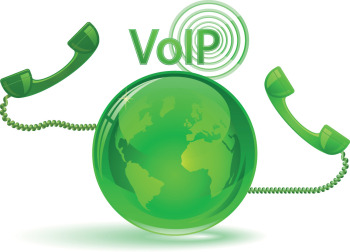The computer age offers incredible opportunity for business. Companies harness the capability to communicate with vendors and clients around the globe. Traditional telephony combines with modern-day Internet capabilities.
Why do so many business owners consider VoIP solutions? Using telephony resources via Internet Protocol allows for unified communication resources, combining voice and data endeavors, making it easier for employees to work from the office or remotely.
Owners have access to a variety of VoIP setups, electing for in-house hardware or outsourcing for needs. Understanding basic hardware better improves final purchase decisions.
Basics
ATA
The analog telephone adapter connects VoIP-variety telephones into router ports, granting users access to features such as echo reduction and conference calling. ATAs afford the convenience of saving on hardware if the business owns VoIP-ready telephones.
Voice Routers
Like traditional routers, voice routers present the ability to access the Internet, but along with the added benefit of connecting VoIP telephones. Unlike traditional routers, these hardware devices are optimized for voice-over use.
IP Phone
Larger-scaled outfits oft elect for IP phones with voice encryption, headset support, and program-ready buttons. IP phones allow for the dismissal of adapters; rather than traditional jacks, these have Ethernet ports.
Beyond Basic
BT Fusion
Imagine the ability to leverage mobile phone telephony without paying bulk prices. BT Fusion helps allot and scale usage. The VoIP hardware switches calls from mobile to landlines, directing calls to the latter when possible to save resources and money.
Chatterbug
This small hardware device sits between the telephone and phone line, routing long-distance calls to the Chatterbug VoIP service without participation from an Internet provider.
Magic Jack
Magic Jack plugs directly into a computer’s USB port, hosting a traditional phone jack, aligning with a number of phone models. The versatility enables a number of phone arrangements, possibly escaping the need for new phone sets.
In-House or Outsource
VoIP technology, effective and convenient, will service small to large businesses for time to come. Availability poses no problems, but owners must decide whether to leverage an outsourced vendor for services and hardware or purchase used or new equipment.
Those who purchase hardware outright enjoy the advantages of evading rental costs and the afforded ability to take hardware in or out of the office. Those who outsource for hardware save time and devoted resources toward the cause. Read various hardware literature including cordless phone reviews; there is no objective choice. Tailor purchases to your business.
Variety of Choices
Those seeking VoIP resources benefit from a number of choices. For example, some services, allowing computer users to communicate face-to-face, are completely free. Such could be enough to address the needs of a small business owner or startup outfits. Alternatively, the robust needs of larger businesses are likely to warrant paid hardware, yet daily operations could be supplemented with free services to curb costs.
It’s no mystery voice-over telephony benefits a number of businesses, especially those taking time to learn ways VoIP works for short and long-term needs. Familiarized owners and managers secure the basic hardware needs, taking advantage of core and advanced features, fueling business potential. Optimize costs with digital resources; it’s likely your business already uses the Internet; now, combine data and phone resources, making operations more efficient.










